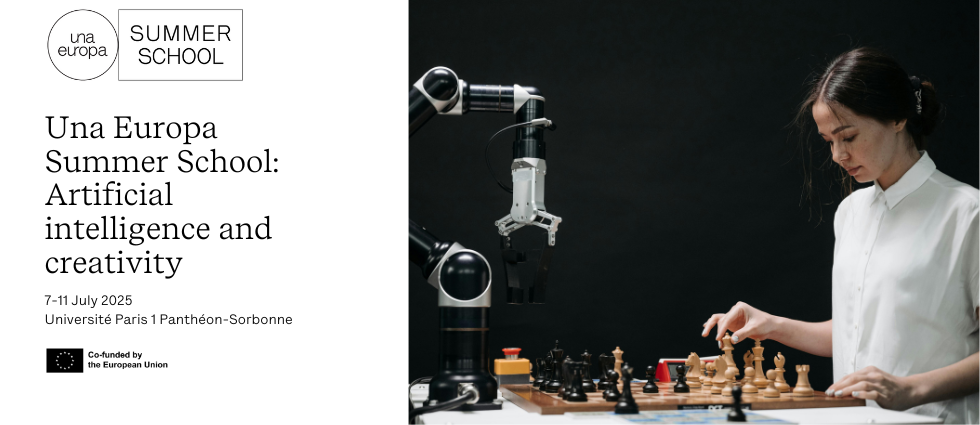The summer school is funded thanks to the Erasmus+ Blended Intensive Programme. In accordance to the BIP requirements, some activities of the summer school will take place online.
Introductory courses will be provided to all participants, in order to level their understanding of the course material of the summer school.
There will be two online teaching days, on June 5th and June 10th.
Attendance to the online courses is mandatory for all participants.
June 5:
11h-12h: General presentation of the summer school.
14h-16h: Lecture: 'Creating deepfakes - from techniques to tools', by Camille Salinesi, Professor at Université Paris 1 Panthéon-Sorbonne.
June 10:
9h-10h50: Tony Veale - "The Transformer: The Optimus Prime of Large Language Architectures"
Topics to include: a brief summary of recurrency in Recurrent Neural Networks; Representational Encoders and Decoders; the shift to Transformers; Attention -- Self and Cross; Worked Examples (of the Transformer at Work); Applications of Transformers and the generality of the architecture (encoder-only uses; decoder-only uses); the GPT architecture and conversational agents ("chat bots"). While there is far too much material to go through if we are to scratch the surface of this fascinating topic, I will provide links to my online course on Large Language Models and Generative AI.
-> You can find the slides from the teacher here.
11h-12h30: Zaneta Zeglen. Kill Me or Feed Me: AI in Creativity Stimulation
Mini-lecture + interactive discussion
This workshop explores the ambiguous role of artificial intelligence in creative processes. Can AI truly stimulate human creativity—or does it sometimes suppress it? Through a blend of theory, real-life examples, and shared student experiences, we will reflect on how AI reshapes communication, intention, and imagination. Drawing from interdisciplinary perspectives and participants' own stories, we will ask what it means to “co-create” with AI.
We’ll challenge the boundary between assistant and partner, examine the role of motivation and engagement in creativity, and play with unusual tasks (like breaking up with your AI assistant!) to reflect on how machines affect our sense of authorship, purpose, and voice.
The session is participatory, reflective, and experimental, aimed at sparking dialogue across disciplines.
-> You can find the preliminary biography from the teacher here.


